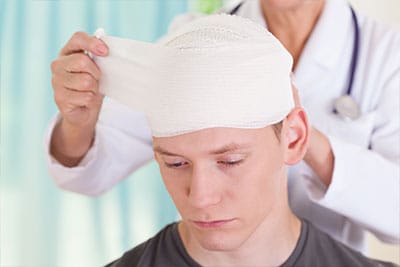Coping after a traumatic brain injury
Creating a routine, trying new things and relying on a support system can help a person cope after suffering from a traumatic brain injury.

Residents in West Virginia can suffer from a traumatic brain injury after a bump on the head or a major fall. According to the Centers for Disease Control and Prevention, 47 percent of head traumas seen in the emergency room or at hospitals result from a fall. Falling is the largest cause of brain injuries for those under 14 and above 45, but accidents in motor vehicles result in the most brain wounds for those between 15 and 44 years of age. Approximately 2.8 million people suffer from a TBI in a single year. Whether the case is mild or severe, a head wound can affect a person’s everyday life.
Find a routine
Injuries that affect the brain can change a person’s ability to remember daily tasks. This type of wound also has a tendency to change the injured party’s emotions. In other words, tasks that used to be easy, like shopping at a crowded grocery store, can cause stress and anxiety after a brain-related accident. A set schedule helps compensate for memory problems as well as emotional agitation. The following tips may help a person create a routine that works for him or her:
- Create daily to-do lists, and check off items as they are completed.
- Keep items, like keys and remote controls, in the same spot each day.
- Set alarms for important daily events, such as taking medicine or going to appointments.
- Make time for hobbies each day.
Getting into the habit of following a routine may help the person coping with a TBI to gain control over his or her emotions, build up organizational skills, and increase memory power.
Try new things
Even though a set routine may help make a person feel comfortable, occasionally trying new things can really help move along the coping process. Someone who has suffered a head injury should set goals for him- or herself, such as starting to cook or drive again. These new daily tasks, while simple before, may help instill a new sense of independence after an accident. Occupational therapists may be able to help prepare someone to try new things comfortably.
Build a support system
Depending on the severity of the brain wound, the injured person may need daily help in the form of transportation, supervision or companionship. A support system can be made up of trusted colleagues, family members, friends and therapists. Even as the person gains more independence, a support system is still an important thing because TBIs can cause health issues down the road.
No matter what causes a brain injury in West Virginia, it can result in a completely different life for the injured person. Working with a knowledgeable attorney may be beneficial.

